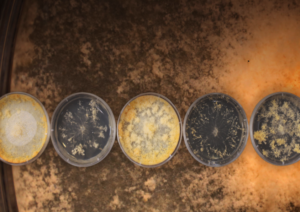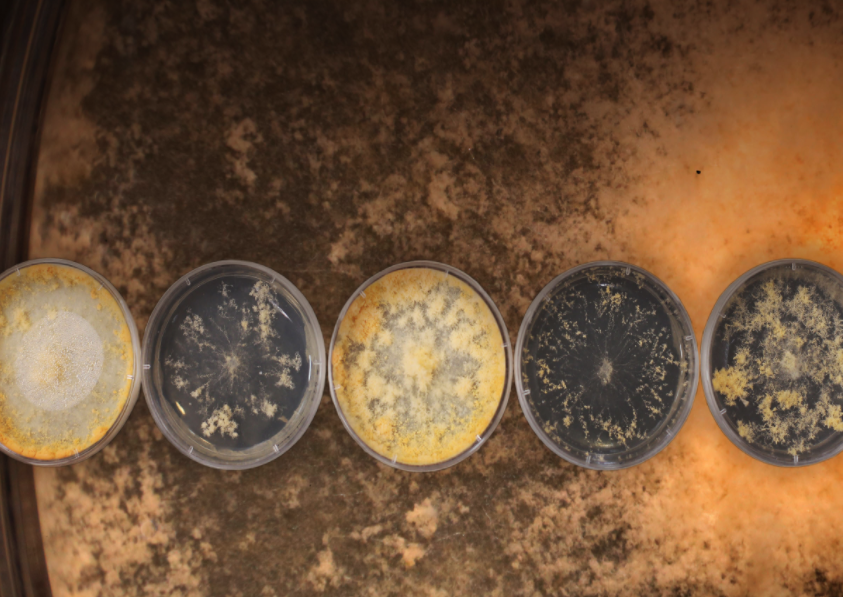
Research using Neurospora crassa, a filamentous fungus model organism, has yielded a breadth of advances in genetics, molecular biology, and biochemistry. (Illustration by Nathan Johnson | Pacific Northwest National Laboratory).
An international team of researchers, including scientists from the Joint BioEnergy Institute (JBEI) and U.S. Department of Energy (DOE) Office of Science user facility—the Environmental Molecular Sciences Laboratory (EMSL) conducted a study to identify enzymes that could be genetically manipulated and engineered to speed up the deconstruction process. Using data from EMSL and the Joint Genome Institute (JGI), the team identified a secretion mutant in the model fungus, Neurospora crassa, and subsequently modified the gene in a different filamentous fungi, Myceliophthora thermophila.
This modification enables the fungi to produce large quantities of enzymes. Through these systems biology and genetics studies, the research has also given insights into the regulation of enzyme secretion in filamentous fungi, allowing industrially employed fungi to be genetically engineered.
“The more we learn about the genes whose products are involved in protein secretion, the more options we have for strategies to engineer improved fungal factories for enzyme production,” said Scott Baker, one of the authors of this research. Baker, a JBEI scientist and Biological Systems and Engineering affiliate, leads EMSL’s Functional and Systems Biology group and has an affiliate appointment as a fungal biotechnology scientist with JBEI.
Read more on the JBEI website.




